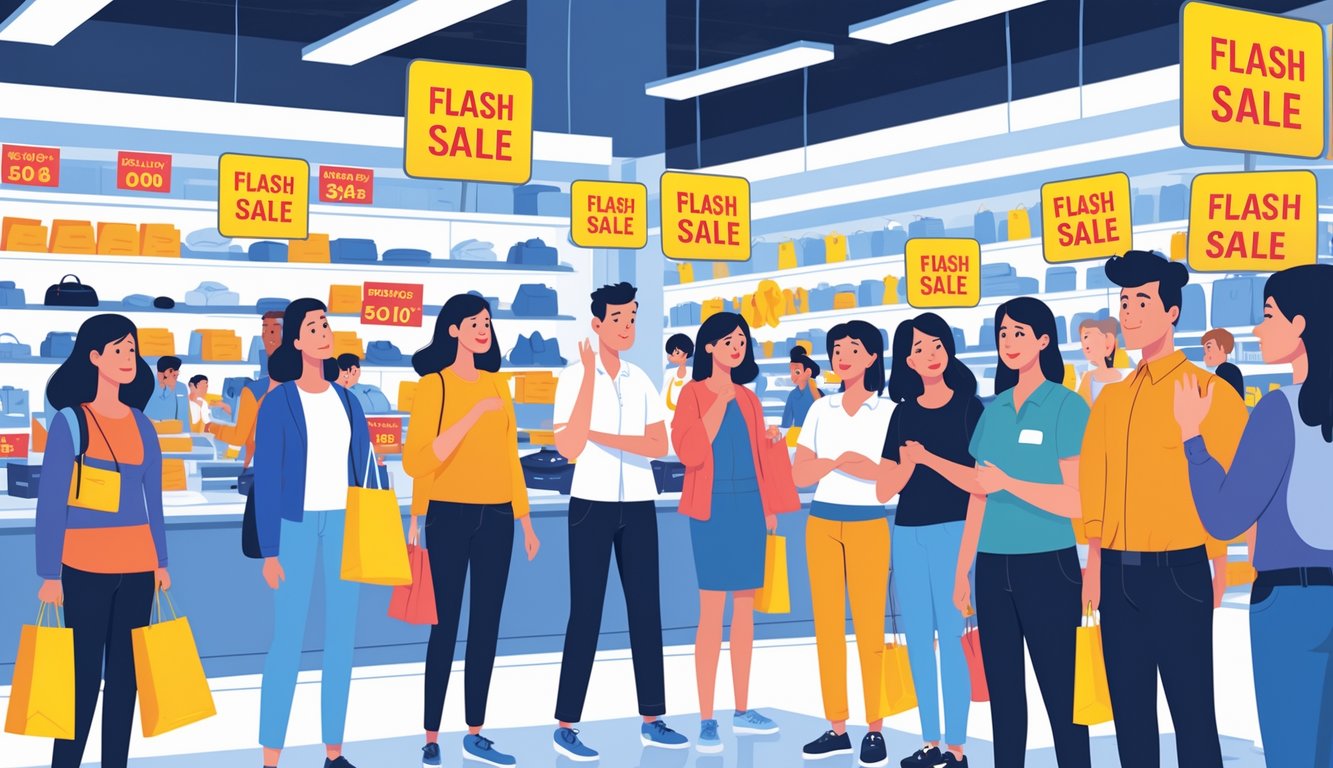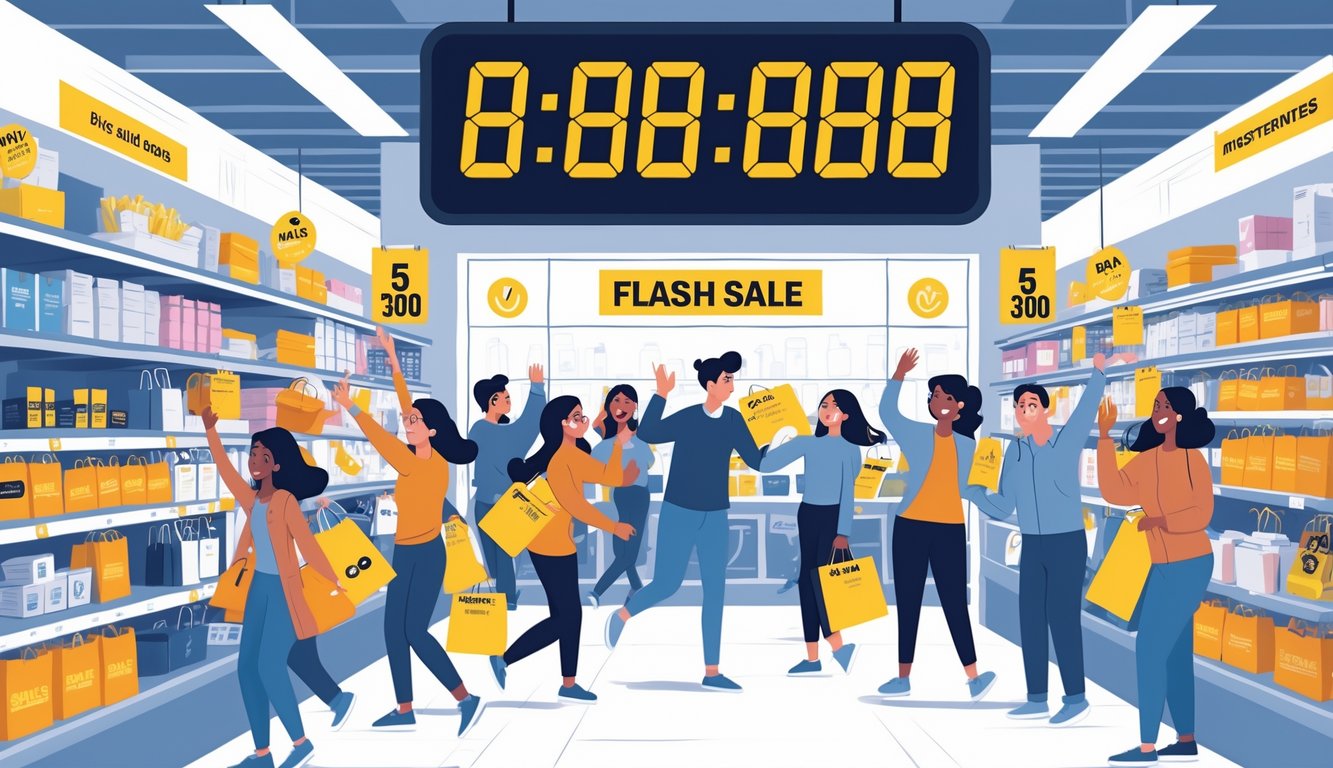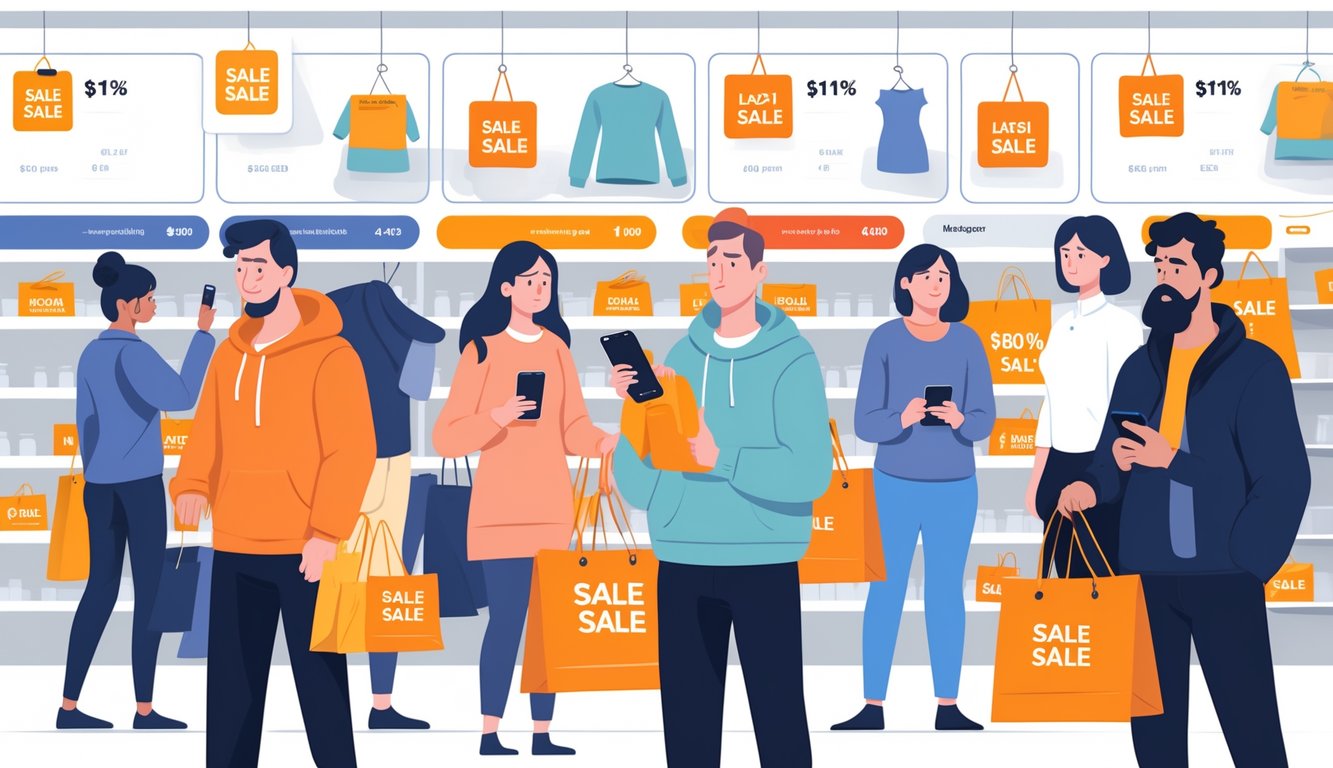
So, someone on my timeline lost out on another half-off wireless headphones deal—five minutes, cart glitched, poof, gone. Is that just how it goes now? Retailers are freaking out because flash sales have gotten so cutthroat that cities (and, weirdly, some stores themselves) are looking at just banning these lightning deals to stop the madness. I keep hearing stuff like “all the inventory disappeared instantly” or “the timer said ten minutes and then—nope.” Sometimes it feels like the sites are just daring you to see how fast you can type your credit card in, but, according to these breakdowns of the flash sale chaos, it’s apparently more science than random luck.
Ever tried nabbing a bestseller before it disappears? Good luck. Everyone thinks they’re the only one getting shafted, but those “out of stock” errors don’t care about your hopes and dreams. I’d love to say I’m above the 70% off shoe scramble, but brands know those countdowns work. My browser history doesn’t lie, and some e-commerce analysts claim bans might just make us more desperate next time. The ban thing? Not even slowing down the pop-up deal trend—everyone knows flash sales trigger a weird panic that normal discounts just can’t. And try telling your friends you missed the air fryer deal because the site crashed. They’ll never let you live it down.
What nobody ever brings up—seriously, why?—is how returns get handled with these bans. My cousin panic-bought three Bluetooth speakers and now can’t return a single one. So everyone’s scrambling, bans are flying, but then I see platforms like Groupon, which does services differently: less inventory drama, more chill urgency, and people still shop. Bans, missed deals, site meltdowns, return nightmares—everyone’s chasing the same vanishing price, but no one admits they kinda love it.
Understanding Flash Sales and Limited-Time Discounts

I’ve watched people sprint for 70% off sneakers and still whine because the deal vanished before checkout. Retailers dangle these mega-discounts in ways no coupon or clearance rack can touch, so buyers end up grumbling about FOMO, impulse clicks, and, honestly, nobody even knows why these fleeting deals are so good at driving us nuts.
What Makes Flash Sales Unique
It’s a mess—nonstop notifications, then suddenly: “Flash Sale—60% off, ends in fifteen minutes.” Cue panic. The magic isn’t just the low price; it’s the urgency, the ticking clock, and that fake sense of being in an exclusive club. Amazon’s not the only one—Gilt Groupe and Rue La La kicked this off ages ago.
Scarcity makes people mash “Buy Now” before their brain catches up. I heard a Woot.com exec say, “If it’s always there, nobody cares.” And, yeah, the data backs it up: behavioral economists say these limited-time discounts jack up impulse buying by 35% or something. But let’s be honest—people just end up stockpiling junk. Limited doesn’t mean you actually want it.
Everyone acts like they have self-control, but “reactance theory” (I barely got it in grad school, don’t quiz me) says we hate losing options, so we rush. And when the deal disappears? Regret theory: you obsess over the one that got away. The whole thing’s built on denial and wanting what you can’t have.
The Rise of Limited-Time Promotions
Back in the day, promos meant digging through newspaper ads or endless emails—now, I get five push alerts before I even finish coffee. Flash sales, daily deals, countdown codes: online stores crank up the urgency in ways brick-and-mortar never could. Groupon spammed everyone with local spa deals, and suddenly my grandma was a bargain hunter.
It’s not just FOMO, it’s straight-up overload. Retailers even made up new shopping holidays—Singles’ Day, Black Friday, random “members-only” events nobody’s heard of unless you’re on some secret email list. And somewhere, some intern tracks how fast you check out during these flash deals. Creepy, right?
Nothing fancy about it: a big red timer, “Only 3 left,” and suddenly you’re bragging about saving $100 on an air fryer you didn’t want. Scarcity just makes stuff feel valuable. There’s actual research—commodity theory, regret theory, reactance theory—for every second you waste deciding.
Key Players in Flash Sales
Who started this mess? Blame the old-timers: Woot.com, Gilt Groupe, Rue La La, Groupon—these folks made flash sales a thing. Gilt used to sell out designer bags before lunch, Rue La La had secret “Boutiques,” Groupon taught us to wait for codes or get ripped off.
Every online store—fast fashion, electronics, you name it—runs these deals now. They use algorithms, overstock, brand collabs, whatever works. Elementor’s e-commerce blog breaks down “best practices,” but honestly, it’s just a race to see who can scream “Hurry!” the loudest.
I’ve lost count of friends who bought blenders at half price only to see them cheaper next week. It’s a click-regret arms race, not a money thing. But does anyone stop? Nope. For every person burned, two more show up convinced the next flash sale is their big break.
How Flash Sale Bans Are Impacting Shoppers

Seriously, every time I try to grab clearance Levis or that hyped $30 air fryer, it’s a losing battle—and now they’re banning flash sales? Dominoes falling: rare deals gone, online mobs get louder, and my own shopping habits have gotten weird in ways nobody saw coming.
Popular Discounts Shoppers Are Missing
First thing that stings—those wild markdowns on smart speakers, skincare bundles, limited-release sneakers—sometimes 70% off, sometimes just “was it ever really that cheap?” Sites used to run thirty-minute windows where yoga mats disappeared faster than my motivation to work out. I read somewhere (Retail Dive? I forget) that flash sales moved $3 billion in lifestyle stuff last year.
My friend’s sister? She waits every June for a workwear suit bundle to go on flash sale. Missed it last year when her local store banned them. Literally stood outside, phone in hand, nothing. People chase “early bird” blenders, one-per-customer mascara, weird home tech nobody else can find. With bans, the gold rush is just… over. I tried explaining to my neighbor why a generic 10% coupon doesn’t cut it—impossible. Not the same.



